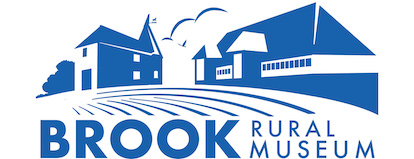Our History
Pre-history
Our origins can be traced to the collection of old Kentish agricultural implements begun in 1931 by N P Bagenal of the East Malling Research Station and G H Garrad, Agricultural Organiser for the Kent Education Committee. Both men had been on the staff of the South Eastern Agricultural College at Wye (later Wye College).
The collection was initially housed in Maidstone at the Old Tithe Barn. During the Second World War it was moved to East Malling for safe keeping. In 1948, Kent County Council accepted an offer from Wye College to take over the collection and establish it as as a museum. Student members of the College Archaeological Society took responsibility for the transfer, display and labelling of the collection, initially housed at Coldharbour Farm, between Wye and Brook. A driving force at the time was Michael Nightingale, a student with a deep interest in the subject who later became well known in Kent for his passionate defence of the rural environment.
The move to Brook
In 1957, the College purchased Court Lodge Farm in Brook and the magnificent 14th-century Manorial Barn became available for housing the museum. Under the dedicated curatorship of Frank Thompson and later Bob Farrar the collection grew and became well known to students of agricultural history in the south-east.
In 1996, the College realised that it could no longer support the Museum in the way necessary for it to survive and develop. A charitable Trust, The Wye Rural Museum Trust, was formed under the direction of the same Michael Nightingale who had been so active in the origins of the project in the 1940s. Funds were raised from the Heritage Lottery Fund and from many corporate and individual donors. In the spring of 1997, the Trust bought the Barn and associated buildings from the College and the College gave the collections to the Trust. Michael Nightingale died in 1998, knowing that the long-term future of the museum was secure.
Present day
Since then the museum has been run by a dedicated team of volunteers who open the museum to the public every weekend during the summer months, and undertake numerous tasks behind the scenes. The museum has also been blessed with the presence of several passionate individuals who successively managed the museum and shared their knowledge, including Tom Hill, Brian Wimsett and Graham Bradley.
In 2022, the museum was awarded a grant from the National Lottery Heritage Fund to help broaden its audiences and secure its future. This has enabled the museum employ its first members of staff and update its procedures and practices, including: changing our name to Brook Rural Museum; updating our branding; hosting a series of pilot events; undertaking an audit of the Collections and commencing cataloguing and digitisation.

